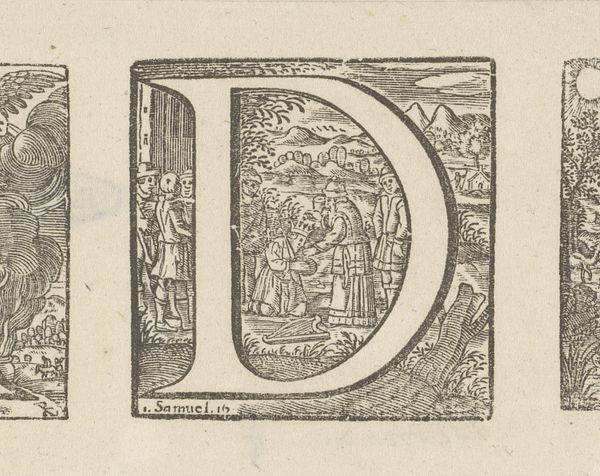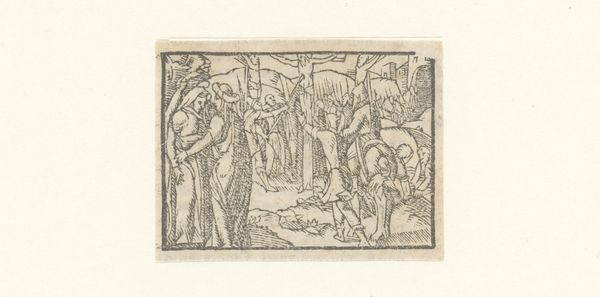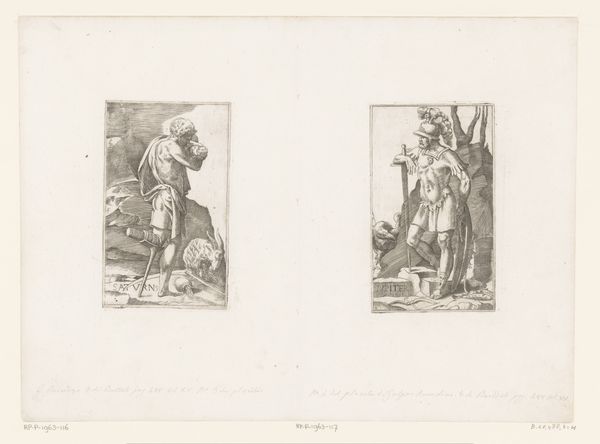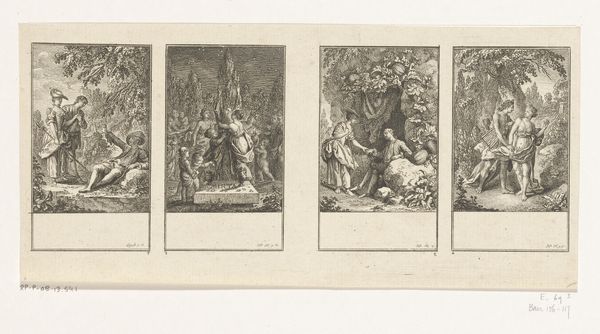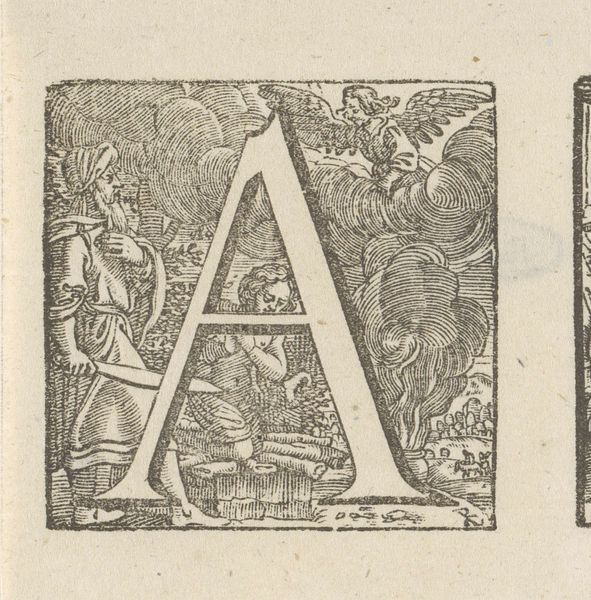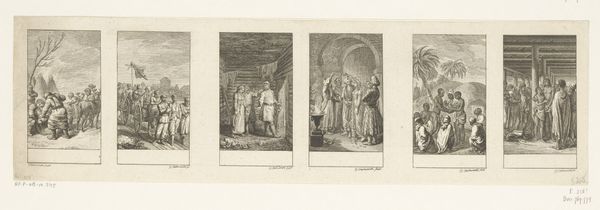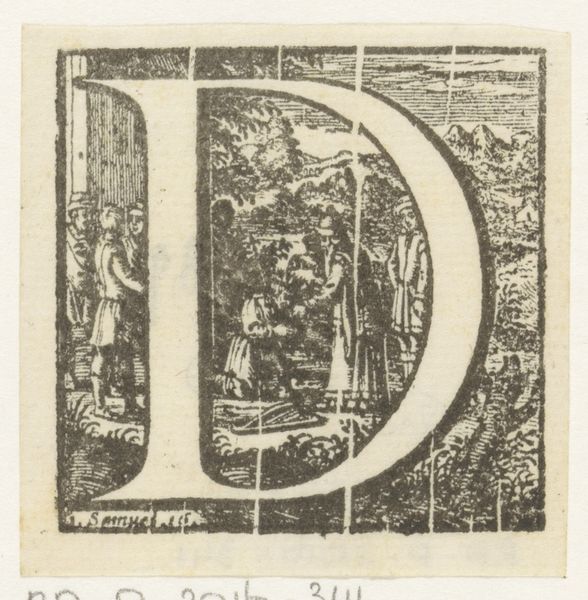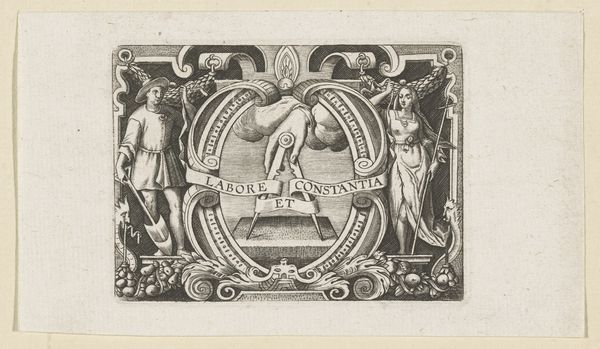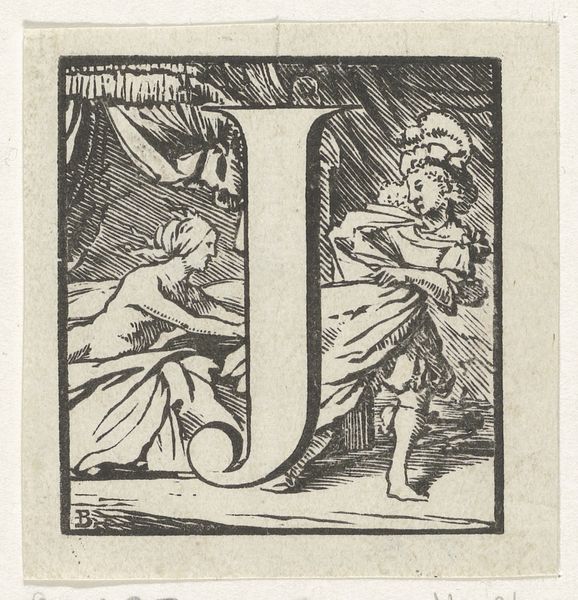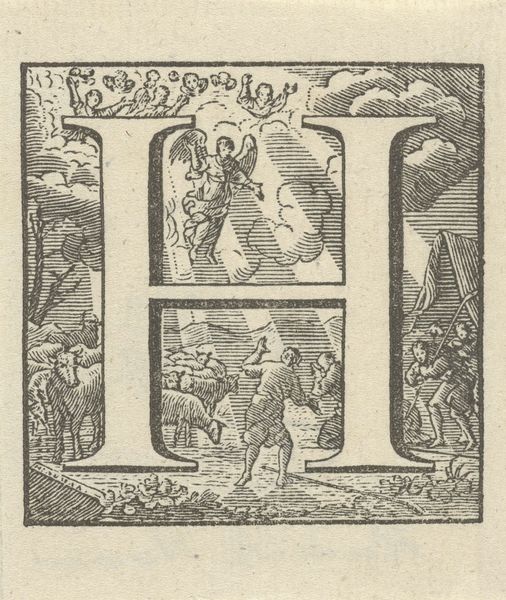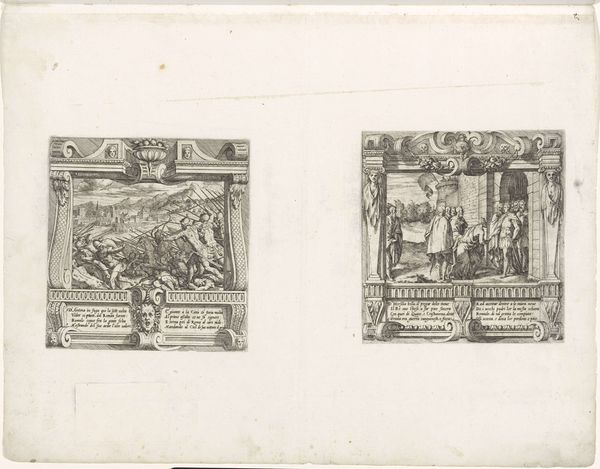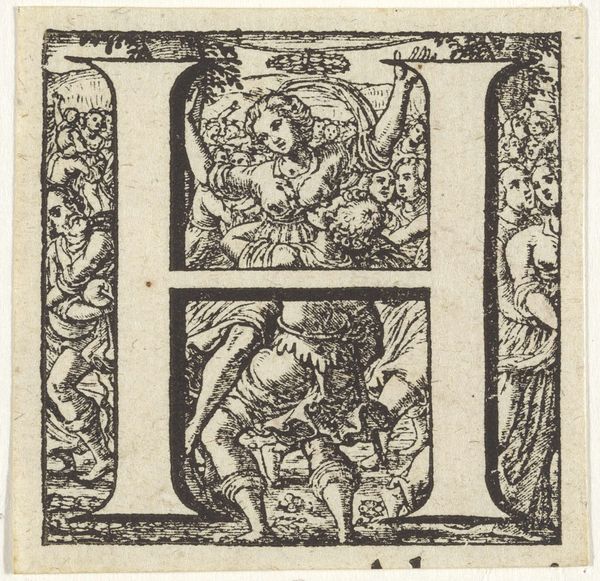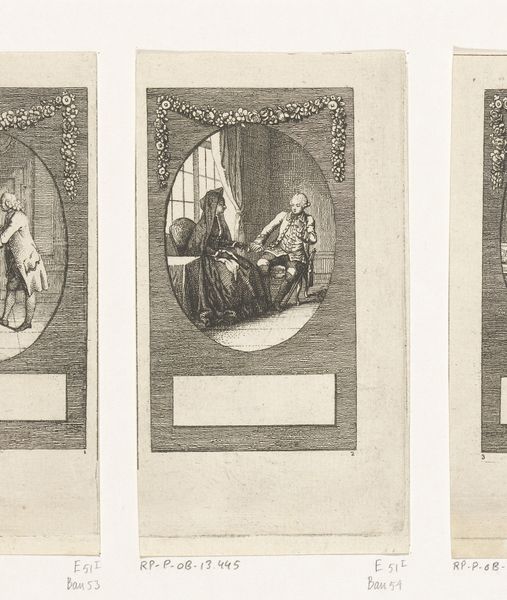
Letters M en L in omlijstingen met een voorstelling van Mozes die gevonden wordt door de dochter van de farao en een boer die zijn beesten voert 1741 - 1795
0:00
0:00
cornelisvannoorde
Rijksmuseum
drawing, print, etching, ink, engraving
#
drawing
#
medieval
#
narrative-art
# print
#
etching
#
figuration
#
ink
#
line
#
genre-painting
#
engraving
Dimensions: height 101 mm, width 185 mm
Copyright: Rijks Museum: Open Domain
Editor: So, this is "Letters M en L in omlijstingen met een voorstelling van Mozes die gevonden wordt door de dochter van de farao en een boer die zijn beesten voert" by Cornelis van Noorde, dating back to somewhere between 1741 and 1795. It looks like it's made with a combination of drawing, etching, engraving, and ink on print. The contrast in subject matter is pretty striking – almost like two separate worlds are colliding. What stands out to you about it? Curator: What I find compelling is how this seemingly simple image actually holds a commentary on societal power structures of the time. The letter "M" illustrates a biblical scene, laden with the traditional associations of power, religion and royalty through the Moses story. Editor: Right, it's this very classical, elevated subject matter. Curator: Exactly. Juxtapose this with the "L", depicting an everyday pastoral scene of a farmer caring for his livestock. Can you see how this seemingly benign image hints at the working class, and their dependence on animal labour? The image is essentially framing social class within these beautifully ornamented initials. Editor: Oh, I see what you mean. It's almost like the artist is using these very different scenes to make a subtle statement about the different spheres of society. Curator: Precisely. It pushes us to consider who is seen as important, whose stories are told, and whose labor is valued—and who is excluded from these narratives. Where does the domestic farmer sit against biblical royalty? Van Noorde is placing these images next to each other, pushing the viewer to really examine these disparities in social classes and expectations. Do you see the image with new eyes now? Editor: Absolutely! I went from just seeing two contrasting scenes to understanding this piece as a form of visual commentary on the dynamics of class. Thank you! Curator: It's exciting to explore how artists subtly weave in social and political statements!
Comments
No comments
Be the first to comment and join the conversation on the ultimate creative platform.
